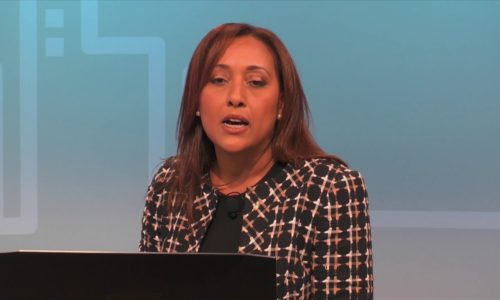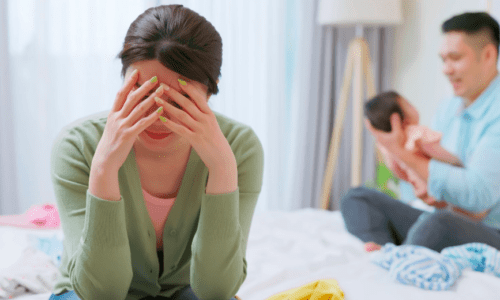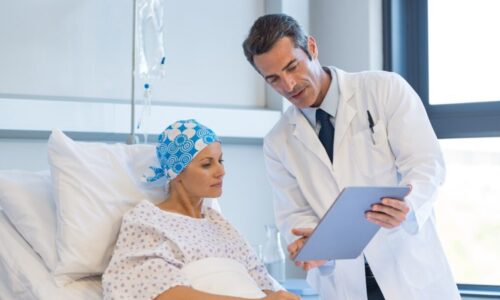Does Deodorant, Underwire and Bras cause Breast Cancer? | Health Channel |

Deodorant, underwire bras, and soy: Do they cause breast cancer? On an episode of Health Insiders, Dr. Jane Mendez, a Breast Surgery Specialist, explains what women need to know about breast cancer, as well as demystifying some common myths.
The first one Dr. Mendez talks about is about deodorant. The interviewer asks, can deodorants cause breast cancer? Dr. Mendez says that it cannot and you should wear whichever deodorant you want. Some people believe that the aluminum content in deodorants can cause cancer, but Dr. Mendez assures that there is no scientific research that supports this claim.
Another commonly held misconception is that the smaller your breasts are, the less likely you are to get breast cancer. Dr. Mendez says that your breast size has nothing to do with your risk of getting cancer.
Underwire bras are also incorrectly thought to be linked to breast cancer. Dr. Mendez admits though, they are the culprit behind a lot of breast pain. Dr. Mendez explains that the area where the wire ends presses very tightly against the breast, and can cause soreness. “One of the most common procedures that I do in my clinic when women come in with breast pain is…I teach them to make a little cut and remove the wire, end of story,” Dr. Mendez says.
Definitely one of the most recurring misconceptions in our culture, is the idea that consuming soy increases your risk of cancer. This is certainly not the case. In fact, recent research points to the opposite, that soy may even help prevent breast cancer, especially in young women. The interviewer of Health Insiders shows a video explaining why. In it, Mayo Clinic Dietitian, Catherine Zaratsky says that soy contains isoflavones, which are plant estrogens. Unlike human estrogens, which in high levels can increase the risk of breast cancer, plant estrogens do not. The American Institute for Cancer Research recommends for people to have one to two servings of soy a day. “Enjoy that cup of soy-rich soup, in moderation. Soy is part of a balanced and nutritious diet,” Catherine reassures.
Next, Dr. Mendez talks about sugar. Sugar by itself does not put you at higher risk for cancer, but the health risks that can come from overconsumption of sugar definitely can. As previously mentioned, being overweight and having higher estrogen levels are risk factors. “There’s a lot of fads out there and special diets and a lot of people talk about it, but just eat in moderation,” Dr. Mendez advises.
The last risk factor Dr. Mendez goes over is hormone replacement therapy. A lot of women want to do HRT but they are scared of getting breast cancer, Dr. Mendez says that they have good reason to be. “The surprising thing is how many women are on it, and for so many years, despite all the new information. So I find myself having to ask women to stop them,” Dr. Mendez explains. When she asks them why these women are on HRT, they say that their doctor recommended it. Dr. Mendez says that she understands why women want to do HRT, “Who doesn’t like to feel younger, have better skin, etc.” Though, chronic use is associated with an increased risk of breast cancer.
To watch the full segment of Dr. Mendez talking about common misconceptions about breast cancer, click here: https://youtu.be/e7kICScf9fQ








